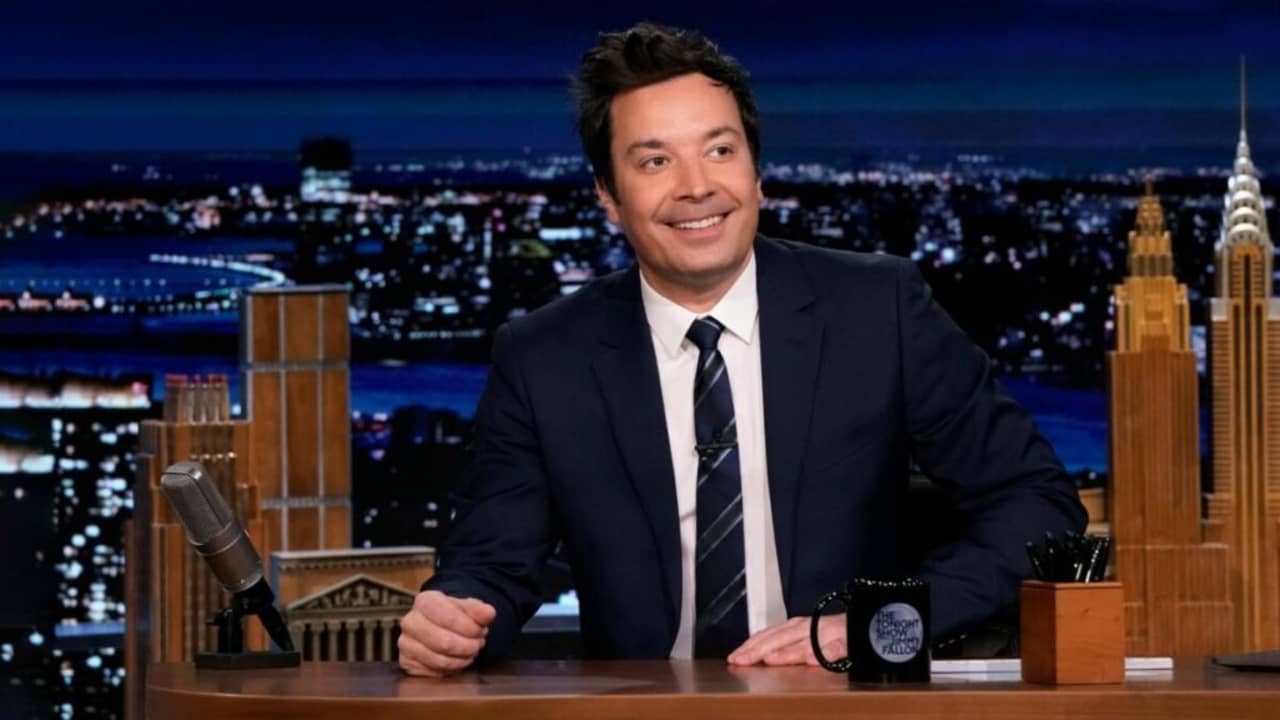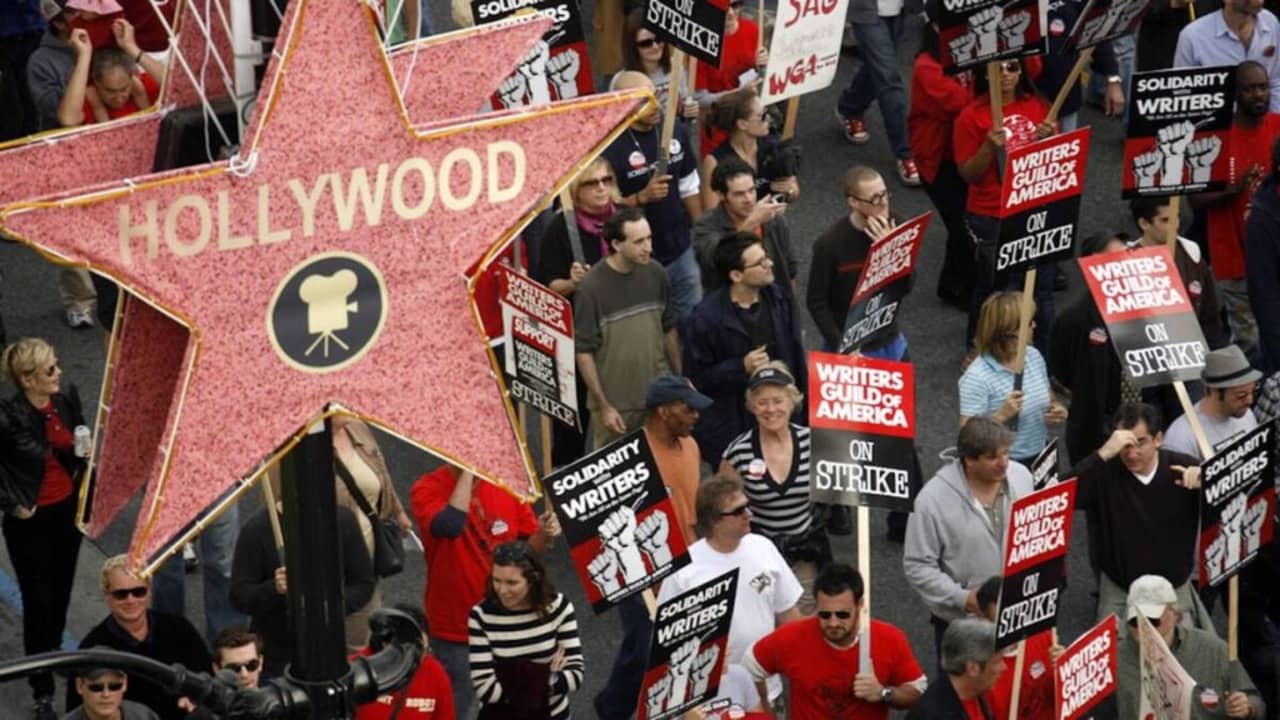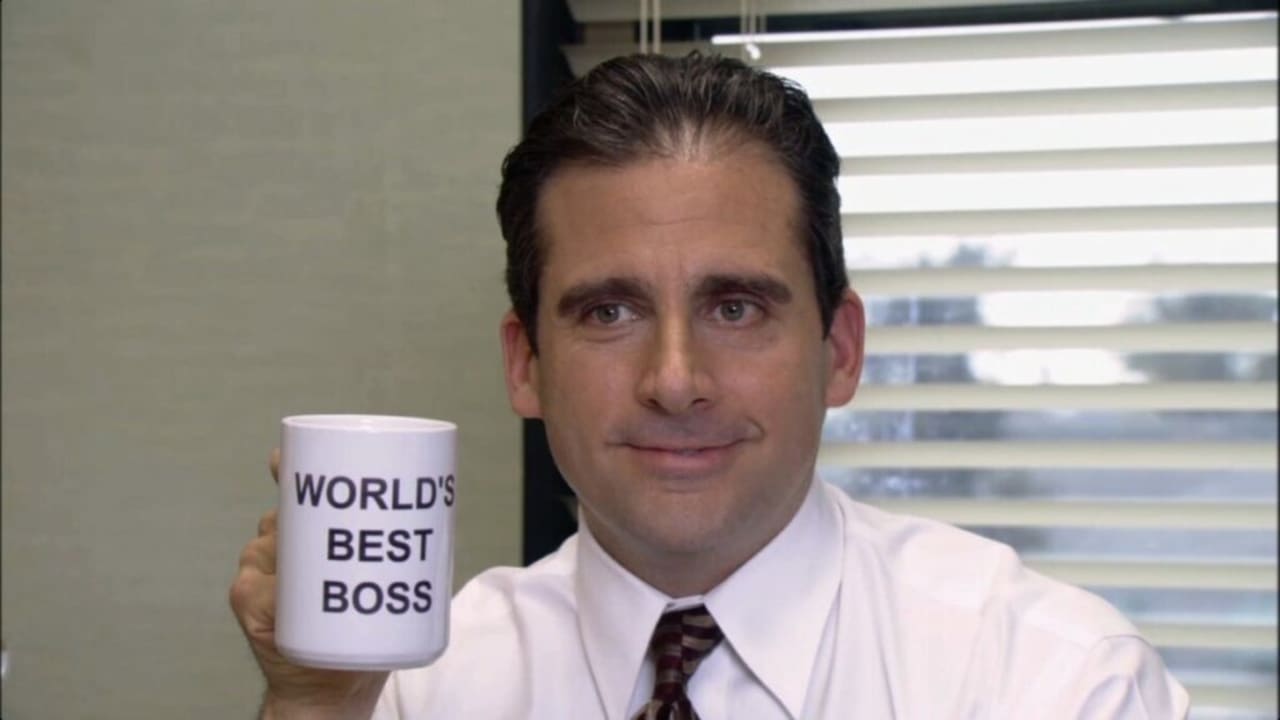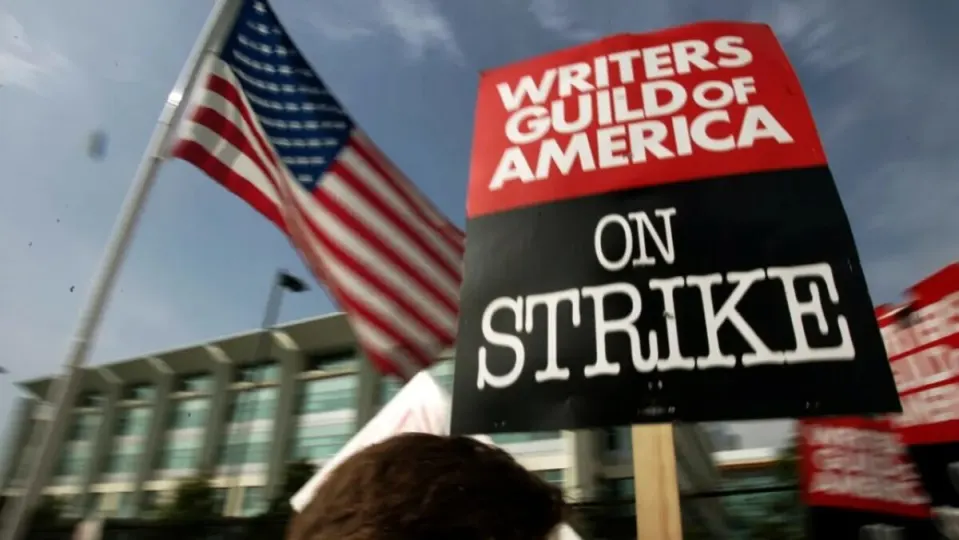Hollywood is going through a critical moment that could cost the industry billions of euros. The reason? The screenwriters’ strike called on May 1, which is already causing the first repercussions. For example, there will be no late nights until the situation is clarified: no Jimmy Fallon, no Jimmy Kimmel, no Stephen Colbert, no Seth Meyers and no The Daily Show.
All of these shows have been canceled in support of the Writers Guild of America (WGA), and they won’t be the only ones. It is something that will surely affect series and movies, and although being productions that are not daily we will not see its impact for some time, it is something that platforms such as Netflix or Disney Plus will suffer.
In fact, the last writers’ strike of this size began in November 2007, lasted four months and cost California’s economy a whopping $2 billion. Considering that even more is being produced now than before, a strike of these dimensions could have catastrophic repercussions for the industry.
In 2017, another strike nearly took place. It was overwhelmingly voted on by union members, and came close to doing a lot of damage to the industry. However, a union agreement with the Alliance of Motion Picture and Television Producers, the producers’ association that organizes these deals, prevented it from going any further.

The reasons behind the screenwriters’ strike
But what are the reasons for this screenwriters’ strike in Hollywood? The reasons are many and varied, but in general it is a problem that has to do with the great progress that the industry has made in recent years.
The last agreement that screenwriters had, which expired on May 1 -that is why the strike began at that time- did not contemplate many of the realities that screenwriters are experiencing today. And that is why the writers of the stories are seeking more recognition for their work.
The first point they are fighting for is wages. The budget for U.S. television series has increased by 50% in the last ten years, but the average salary for screenwriters has dropped by 4%. This leaves the profession as the lowest paid in the industry at the moment, despite being the one on which everything is based.

Then there is the issue of working hours. By needing to produce more to earn the same, screenwriters have to work longer hours and on more different productions, so they have no choice but to demand shorter working hours and for a better price.
But the main complaint of the sector is the compensation they receive according to the success of the films or series they work on. And here the problem lies with the streaming platforms. When a program, movie or series is broadcast in open, the scriptwriter knows at the moment the compensations they are going to receive in terms of royalties, taking into account the audience figures and viewers.
However, Netflix, Amazon Prime Video, Disney Plus or HBO Max continue to maintain secrecy regarding their data, in a market strategy that only helps them. This opacity means that screenwriters never know the profits that would benefit them, and can thus be spared.
On the other hand, some platforms have even eliminated some of their original series from their catalog in order to save these retributions. Thus, screenwriters feel helpless and believe that the situation will get worse in the future.
Finally, something that they are asking for and seems very interesting is that the AIs should not be able to write or rewrite absolutely nothing of the scripts, something that the producers have flatly denied. This will certainly be a very interesting debate for the future.

The great deception of the streaming era: are there more screenwriters?
Another cause pointed out by the union is the false perception of the situation. Yes, more and more television series are being produced, which is a great advantage for the audiovisual industry, since from the actors to the technical team have more work. But is this true for screenwriters?
Actually, no. Despite the fact that there are more series, they have fewer and fewer episodes and seasons -think that we come from series of more than twenty episodes to the new ones that have about ten at the most-. In addition, the public wants more and more author series or miniseries, so the scriptwriters working on them are much fewer in comparison.

The WGA believes that this moment is “momentous” and that an agreement must be reached as soon as possible so that screenwriters can continue to make a decent living in the film and television industry. The consequences could be disastrous, as we noted. In the 2007 strike, series such as Lost or The Office had to cut episodes from their seasons, and this time it seems that everything will have repercussions in delays and cancellations. As if Netflix needed more excuses to cancel its series.
Some of the links added in the article are part of affiliate campaigns and may represent benefits for Softonic.


